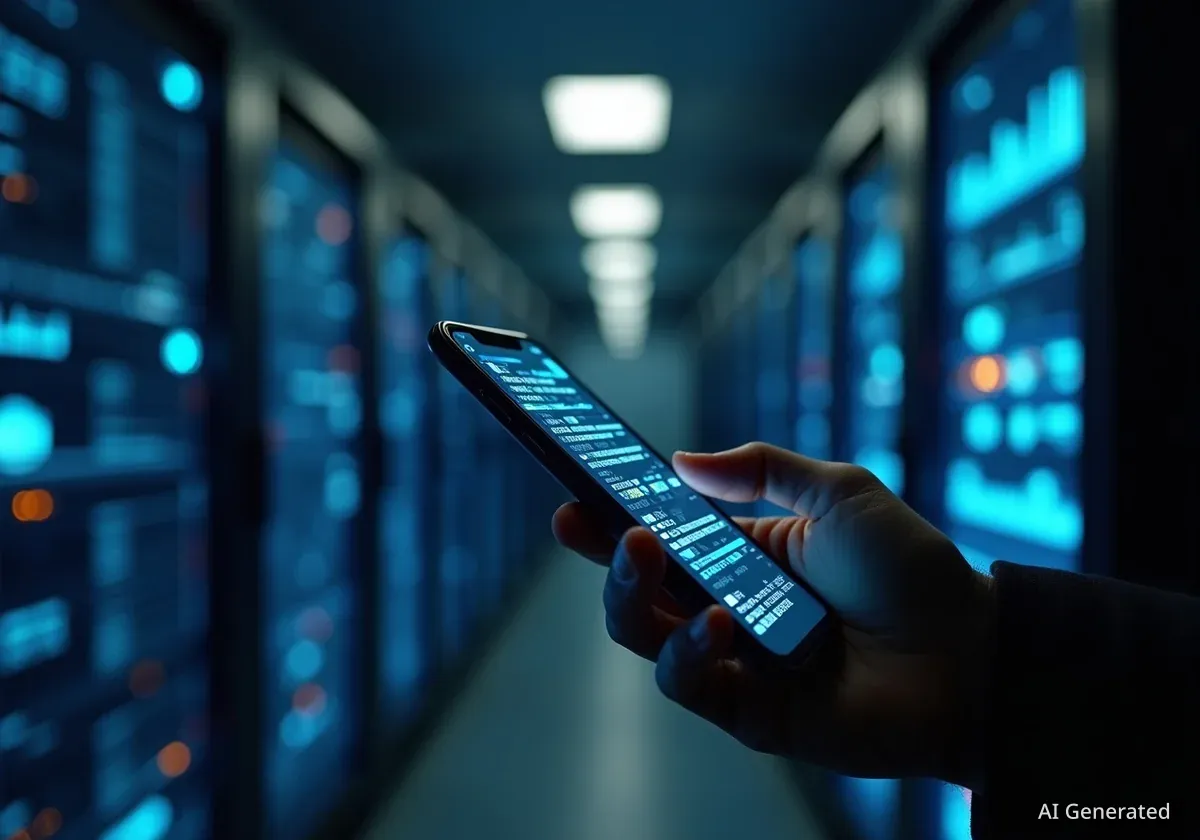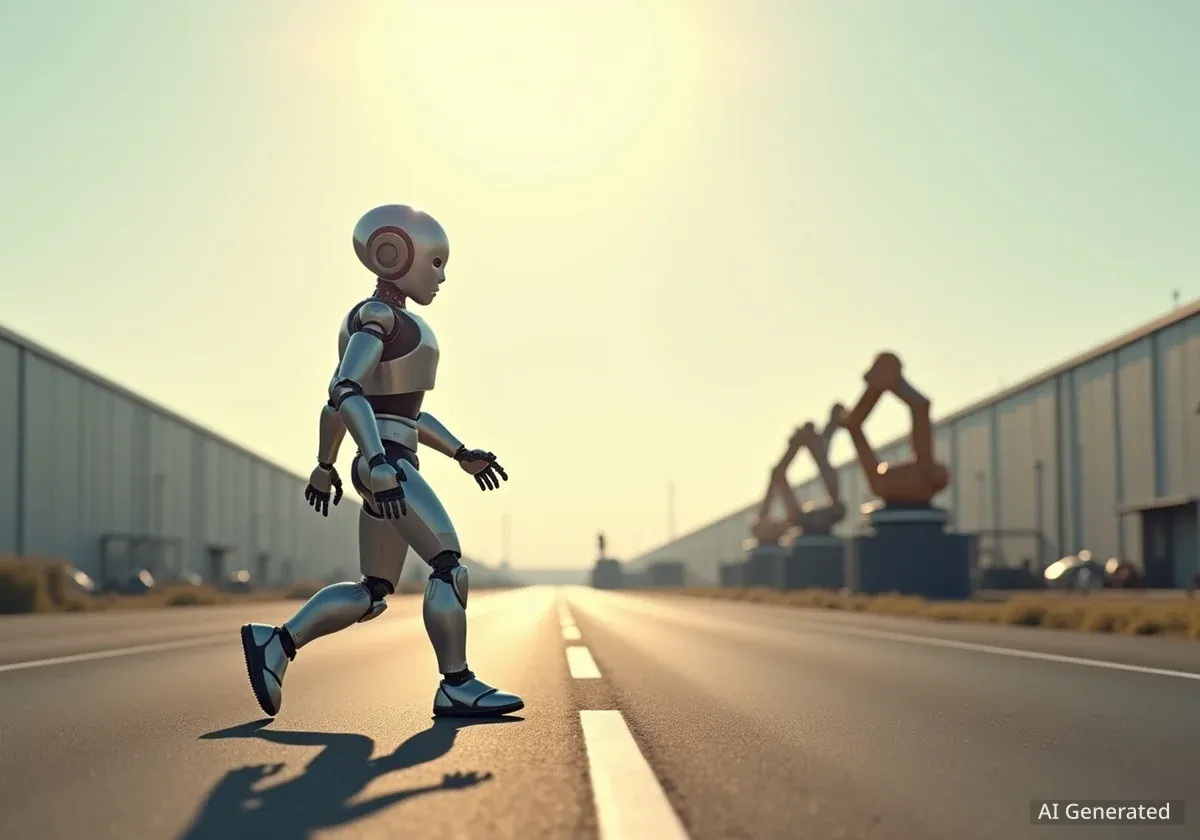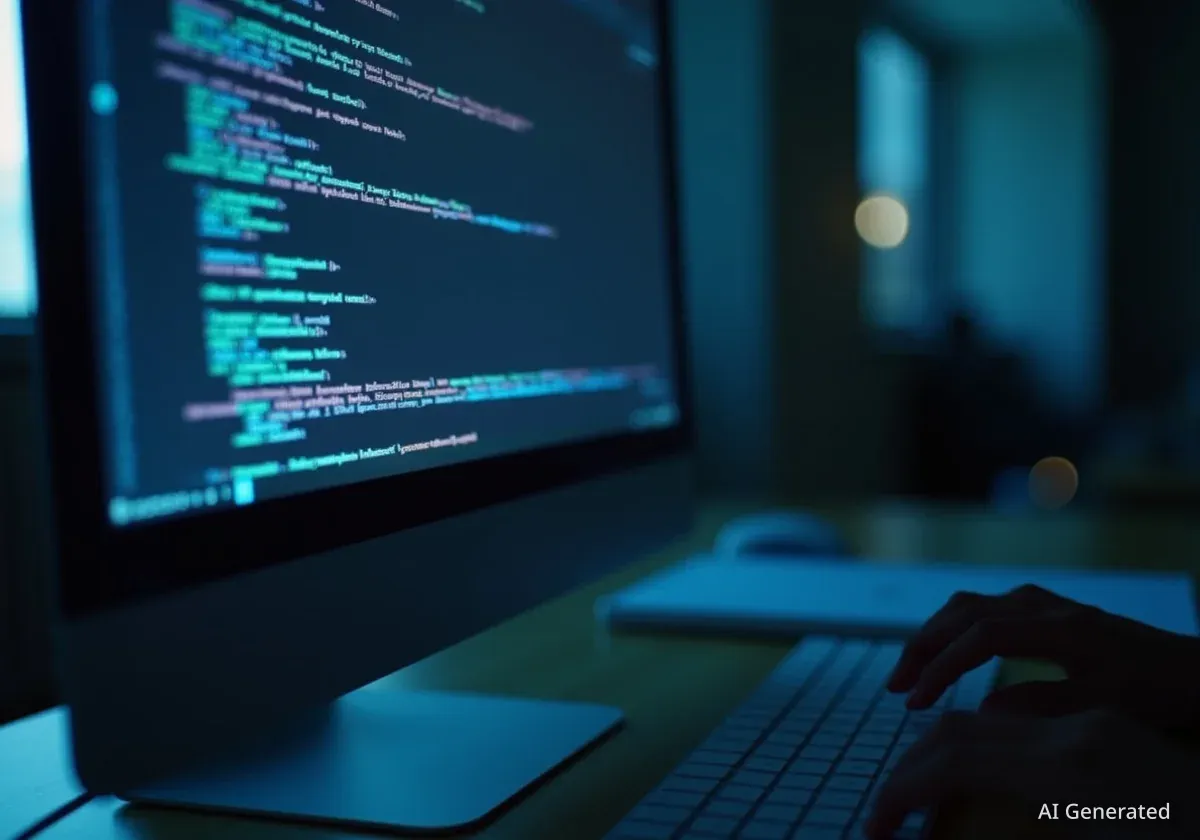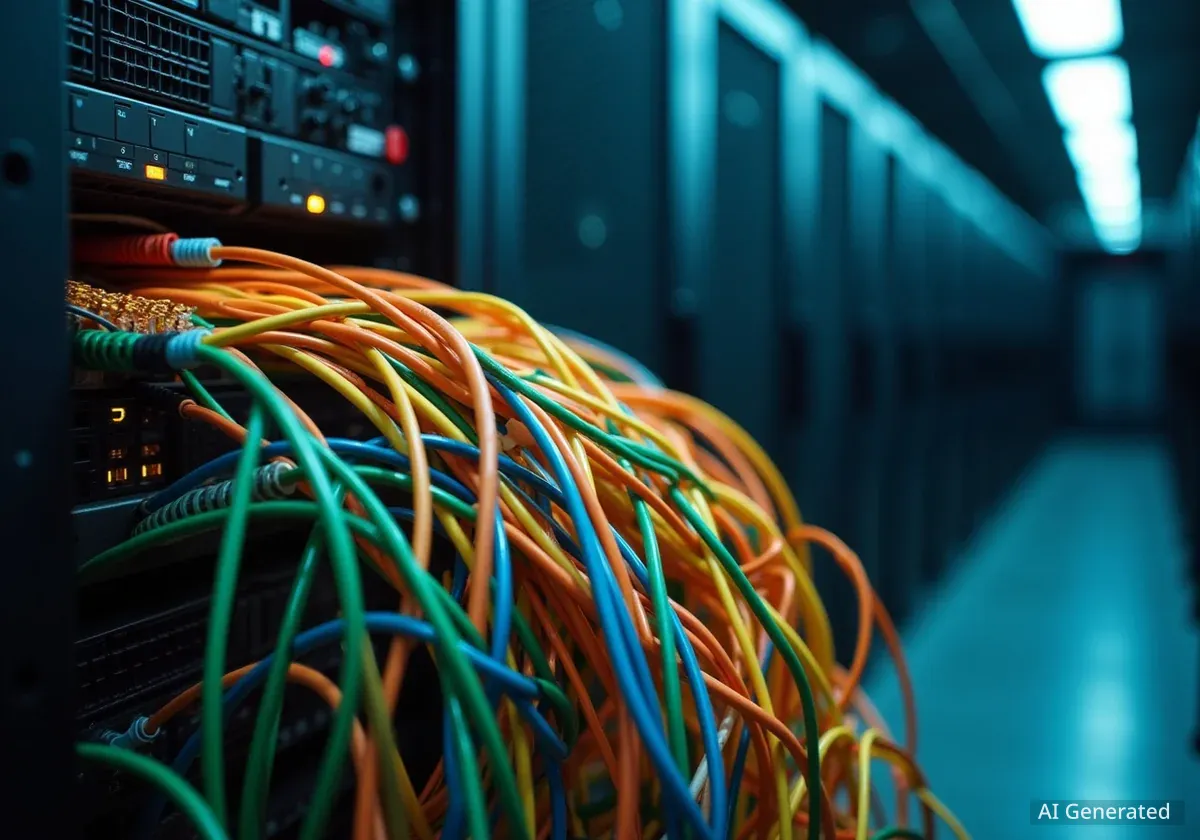A network of YouTube channels is publishing thousands of AI-generated videos depicting world leaders in bizarre, slapstick scenarios, accumulating over 2.2 billion views in 2025. The short, animated skits, which often feature violent cartoonish interactions, have become some of the most-watched political content on the platform.
These videos frequently portray figures like Donald Trump and Benjamin Netanyahu in humiliating situations, often at the hands of leaders such as Vladimir Putin, Ali Khamenei, and Kim Jong Un. Despite their controversial nature, the videos do not violate YouTube's policies because their creators label them as AI-generated fiction.
Key Takeaways
- A cluster of YouTube accounts has generated over 2.2 billion views with AI-animated political skits in 2025.
- The videos often show leaders like Donald Trump and Benjamin Netanyahu being pranked or harmed by figures like Vladimir Putin and Kim Jong Un.
- One prominent channel, "Make AI Great Again," gained initial fame with content reflecting Chinese state media talking points.
- Experts suggest the videos may have geopolitical motivations beyond financial gain, pointing to the specific leaders featured and those omitted.
- YouTube states the content does not violate its policies as it is identified as fiction, but has not commented on its promotion or monetization.
Unprecedented Scale and Reach
The viewership numbers for this new genre of AI content are substantial. Since emerging earlier this year, the collection of videos has surpassed 2.2 billion views. To put this in perspective, the official YouTube channel for the White House has accumulated 88 million views since its creation in 2006. Comedy Central's "The Daily Show" has reached 4.4 billion views over a nine-year period.
According to platform analytics company Zelf, eight of the ten most-viewed YouTube videos about Donald Trump in 2025 originate from this group of accounts. One single video, showing an AI-generated Vladimir Putin and Ali Khamenei directing cartoon bears to attack Donald Trump and Benjamin Netanyahu, has more than 20 million views and nearly 150,000 likes. Programmatic ads for various products, including ketamine treatments and medical solutions, run on these videos.
By the Numbers
- 2.2 billion+: Total views for the AI political skits in 2025.
- 660 million+: Views for the "Global Presidents" channel since June.
- 20 million+: Views on a single popular video featuring Trump, Putin, and Khamenei.
- 150 million: Views for mirrored content on TikTok.
Content and Recurring Themes
The videos employ a slapstick style reminiscent of classic cartoons like "Tom and Jerry" or "The Three Stooges," complete with comedic sound effects and laugh tracks. The narratives are simple and often violent, depicting world leaders in absurd and demeaning scenarios.
Common Scenarios Depicted
The skits frequently revolve around a set of recurring themes and characters. In many videos, Vladimir Putin, Ali Khamenei, and Kim Jong Un are portrayed as clever tricksters who successfully outwit, capture, or eliminate Donald Trump and Benjamin Netanyahu. Other notable scenarios include:
- Volodymyr Zelensky planting explosives in Donald Trump's toilet.
- J.D. Vance dressed as a maid serving fast food to Trump.
- Putin riding a bear to rescue Khamenei from an eagle with Netanyahu's body.
- Leaders attacking oil pipelines with axes and saws.
- Characters driving vehicles made of fruit.
The creators of these channels often include disclaimers stating the content is "just for fun" and not intended to offend. Forbes reported it was unable to reach the account creators for comment.
Potential Geopolitical Motivations
While financial incentives are a likely driver, some analysts believe there may be political motivations behind the content. Bret Schafer, a senior fellow at the Alliance for Securing Democracy, pointed to several details that suggest a potential geopolitical angle.
One key observation is the near-total absence of Chinese leader Xi Jinping, who appears in only a handful of videos. In contrast, the content frequently features leaders and topics aligned with Chinese and Russian state media narratives. For example, the "Global Presidents" channel has produced videos featuring Ibrahim Traoré, the Russia-backed leader of Burkina Faso. Traoré is not a widely recognized figure in major YouTube markets, making him an unusual choice for content aimed purely at maximizing views.
"The tangling of motives would not be unusual," Schafer noted, explaining that the creators could be motivated by both political and financial interests. He also observed that the accounts "did not read as something done by an American."
Background on Key Channels
The channel "Make AI Great Again" first gained significant attention in April for videos that depicted U.S. officials as sweatshop workers. This was released in response to Donald Trump's announcement of tariffs against China and mirrored content that had circulated on Chinese social media. Another channel, "Global Presidents," has featured a Chinese military parade and Venezuelan President Nicolás Maduro praising Chinese technology, both popular subjects in Chinese state media.
Platform Response and Content Proliferation
The AI-generated videos have spread beyond YouTube to other major platforms. Accounts on TikTok mirroring "Make AI Great Again" and "Global Presidents" have amassed nearly 150 million views. Similar content has also appeared on Instagram Reels.
According to YouTube spokesperson Jack Malon, the videos do not violate the platform's policies because they are clearly identified by their creators as fictional, AI-generated content. He confirmed that the company has not found evidence of a coordinated influence operation, though it continues to monitor for such activity.
YouTube did take action against one account in the network, "Cage Carnage," which had 119 million views. The channel was removed because its operator had a previously suspended account. However, the company did not provide answers to questions about the total revenue generated by these videos or the reasons for their prominent placement in user recommendations.
The rapid growth and massive viewership of these AI-generated political skits highlight a new and powerful form of online content. As Schafer expressed, the scale of the trend is surprising. "I was blown away by the number of views," he said.





